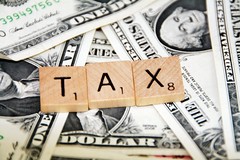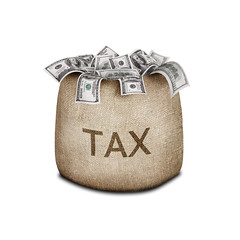What Is Mitt Romney Hiding?
Aug 07
August 7, 2012
kosmo - See all 763 of my articlesHarry Reid is saying that Mitt Romney didn’t pay taxes in past years. Romney has released his 2010 tax return and will release the 2011 return when it is ready – but that’s a far cry from the 12 years of tax returns that his father released when George Romney ran for president.
Republican leaders are calling Reid a liar, and the result of the entire exchange is that there’s as much focus on Mitt Romney’s taxes as there is on how to solve the current unemployment problems.
That begs the question:
What is Mitt Romney hiding?
There are several possibilities. Some are far more likely than others.
- Romney is not hiding anything – The returns from the last ten years may be near carbon copies of 2010, and Romney may be refusing to release the earlier returns on principle alone. In my opinion, this would be a bad decision, as the failure to release earlier returns gives the definite appearance that he is hiding something.
- Romney is committing tax fraud – It’s also possible that Romney is committing outright fraud, either by failing to report income or by taking illegal deductions. However, unless Romney and his legal tax are complete morons, this seems a pretty remote possibility.
- Romney was born in Kenya – Romney may be paying millions in taxes to the Kenyan treasury
- Romney paid $0 tax in some years – This is actually quite possible. I’m sure that Mitt’s stock portfolio has taken a hit in several recent years. It’s quite possible that he sold stock to lock in capital losses that would offset other income.
- Romney had very high income – On the flip side, if Romney had a bad feeling about the market, he may have sold stock to lock in gains. Are there years where Romney had $20, $50, or $100 million in income? It’s definitely possible. it’s even possible that he locked in huge gains as the market was plummeting.
Something to keep in mind is that a capital gain is often the result of many years or accumulation. For the sake of argument, let’s say that Romney had a $100 million capital gain in 2008. The stocks in his portfolio may have appreciated over a span of 20 or 30 years, and a rate of a few million per years. Sure, that’s a lot of money, but it’s not as if Romney opened an eTrade account one day and reaped a $100 profit the next. The huge gain may have been recognized in 2008, but it was building up gradually over the years.
Likewise, if Romney locked in some capital gains in an effort to drop his income to $0, these losses may also have been building up for years or decades.
If you care about how much money politicians make, you really should be focusing on the average income over a long span of time, rather than cherry picking a handful of years. If someone earns $50 million for each of five consecutive years, this is a higher total income that a person who has $0 in income the first four years and $150 million in the fifth year – even though the $150 million catches they eye.
Honestly, as long as Romney fairly reported income and deductions and paid the proper amount in taxes, I really don’t care how much he paid in taxes. His effective rate is fairly low due to the fact that most of his earnings are capital gains. That’s not Romney’s fault – that’s simply the way the tax code is written.
 RSS
RSS






